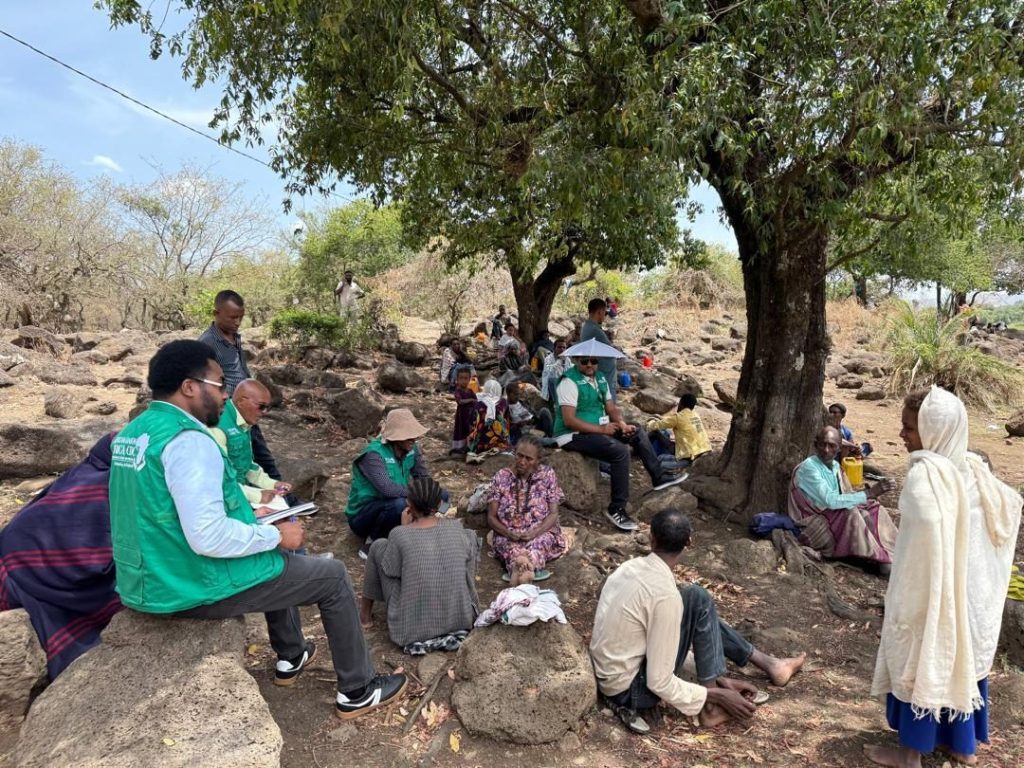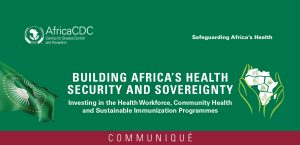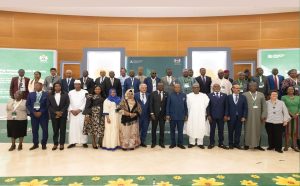Africa CDC’s collaboration with the Ethiopian Public Health Institute (EPHI) and the Amhara Public Health Institute (APHI) is reducing daily cases of cholera in the Amhara Region.
Since the deployment of Africa CDC’s technical experts in late April 2025, the mission has contributed to critical response pillars, including coordination, disease surveillance, case management, infection prevention and control (IPC), risk communication and community engagement (RCCE), research, and capacity building for the region’s incident management system (IMS).
“The major outcome was a significant reduction in the daily number of cholera cases reported,” said Dr Aniekeme Aniefiok Uwah, Senior Country Representative for Ethiopia at Africa CDC.
The results emerged from more effective coordination of the response through the technical support provided by Africa CDC’s team of experts, as well as capacity building of IMS members at various levels through a workshop organised by Africa CDC, said Dr Uwah.
Amhara Region, home to over 25 million people and more than 860 holy water sites, has reported over 2,281 confirmed cholera cases and 15 deaths since January 2025. The influx of pilgrims and fragile water, sanitation and hygiene (WASH) infrastructure at these sacred sites has exacerbated the outbreak, posing significant public health risks.
During the mission, Africa CDC experts conducted a priority visit to the Andassa Holy Water site, one of the most active religious sites in the region, hosting thousands of pilgrims daily. Located approximately 20 kilometres from Bahir Dar, the Andassa Saint George Monastery is a renowned Orthodox Church holy water site, attracting an estimated 20,280 visitors annually who seek both spiritual and physical healing.
Many pilgrims travel from across Ethiopia and beyond, using the blessed water for various health conditions, including mental and physical illnesses, as well as for religious rituals. Recognising the heightened public health risks associated with such gatherings, the Africa CDC team conducted comprehensive risk assessments and provided technical support on IPC, RCCE and WASH. The team engaged local religious leaders, residents, and health authorities to co-develop sustainable, community-driven solutions that address both immediate health risks and longer-term prevention strategies.
As part of this integrated response, Africa CDC, together with EPHI and APHI, organised a five-day capacity-building workshop on cholera outbreak preparedness, surveillance, and response for IMS members at various levels in the region.
“We appreciate the valuable support of Africa CDC as our partner in this mission, working alongside our teams at EPHI and APHI to strengthen capacity at all levels. This collaboration is helping us save lives today and build a healthier, more prepared Amhara Region for the future,” said the Vice President of Amhara Regional State, Her Excellency Dr Mulunesh Dessie Admassu, while commending the partnership during the opening of the engagements.
In addition to cholera-specific activities, Africa CDC technical experts also supported the ongoing 2025 Measles Supplementary Immunisation Activities (SIA), conducting joint supervisory visits to fixed and mobile vaccination posts to ensure the continuity of essential health services during outbreaks. This holistic approach not only addresses the immediate cholera emergency but also strengthens the region’s overall public health preparedness and resilience against multiple health threats.
“Africa CDC remains committed to standing alongside our Member States to strengthen preparedness, protect lives, and empower communities,” said Dr Mazyanga Lucy Mazaba, Regional Director, Africa CDC Eastern Africa RCC. “Our mission in Amhara Region shows that by combining technical support with community engagement and capacity building, we can turn the tide not only against cholera but also other public health threats.”
As Africa CDC reaffirms its dedication to advancing Africa’s New Public Health Order, by promoting country leadership, fostering integrated outbreak response mechanisms, strengthening strategic partnerships, and supporting community-led approaches to enhance health system resilience throughout the continent—the Amhara Public Health Institute presented a certificate of appreciation to Africa CDC, in recognition of its support.







